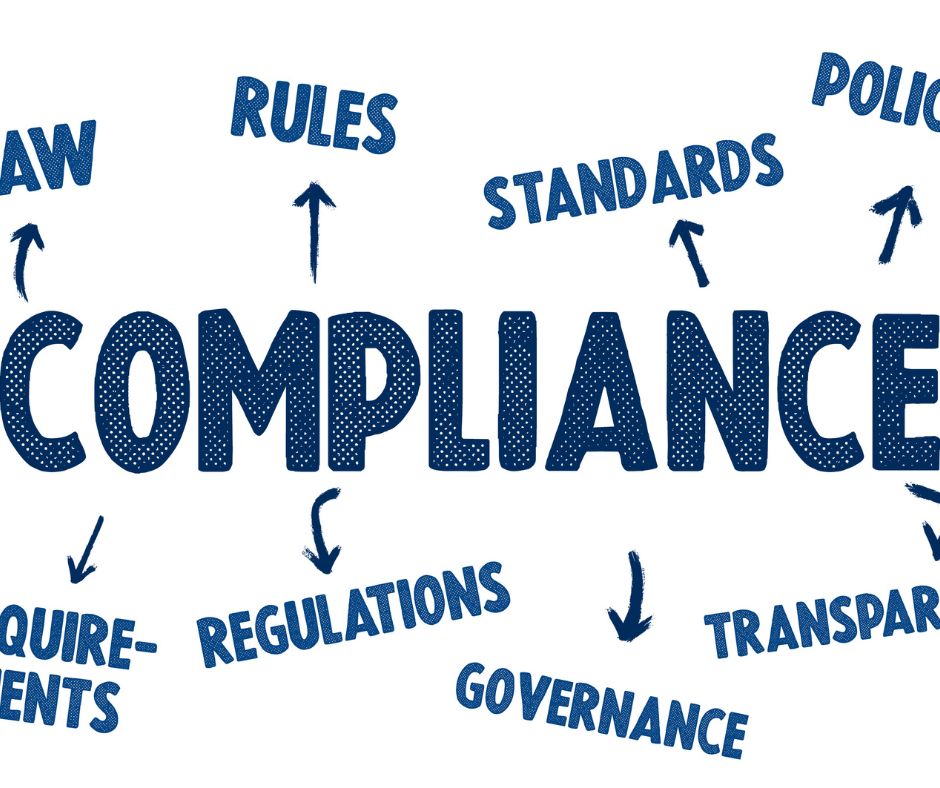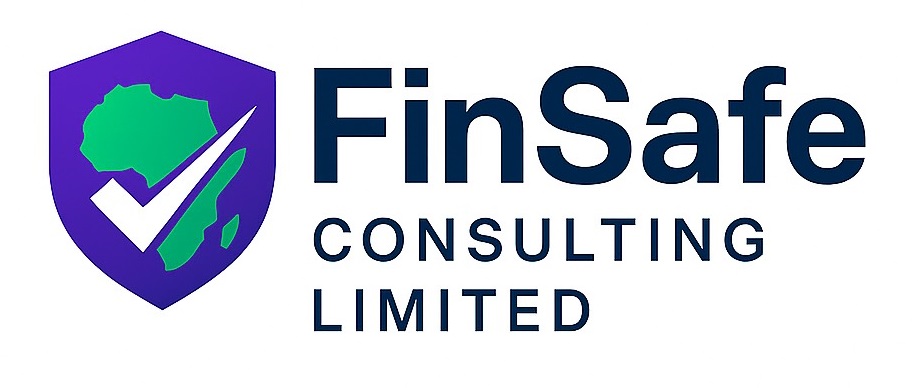
Introduction
In Kenya and across the globe, regulatory bodies are tightening compliance expectations for fintechs, microfinance institutions (MFIs), and other financial service providers. For startups and established firms alike, the risk of non-compliance is no longer just reputational it’s existential.
Non‑compliance with regulatory obligations is no longer an abstract threat—it now comes with steep financial, legal, and reputational consequences. Both local and global enforcement actions demonstrate the escalating pressure on financial institutions to uphold strict standards.
The Current Regulatory Landscape
From the Central Bank of Kenya’s AML/CFT guidelines to FATF recommendations, financial institutions must now adhere to rigorous frameworks. International partners and investors increasingly demand proof of robust compliance systems before engagement.
What’s at Stake?
- Fines and Penalties: Non-compliance can result in hefty fines—locally and internationally. Under the Proceeds of Crime and Anti‑Money Laundering Act, and FRC regulations, licensed institutions can be fined up to KES 20 million for legal entities or KES 1 million for individuals, plus continuing penalties of up to KES 100,000 per day for ongoing violations
- License Revocation: Regulatory bodies have begun revoking licenses for repeat offenders.
- Loss of Business Partnerships: Poor compliance can lead to loss of banking partners and payment channels.
- For Forex Bureaus, Money Remittance Providers, Microfinance Institutions and Digital Credit Providers, CBK may impose KES 5 million fines per legal person, and KES 1 million per natural person, with continuous fines of KES 100,000 per day
Local Examples Illustrating the Cost
1. AML Non-Reporting: Five Major Banks Fined KES 385 Million
In March 2020, five Kenyan banks – including KCB Group, Equity Bank, Co-operative Bank, StanChart Kenya, and Diamond Trust – were fined a total of KES 385 million (approx. US$3.75 million) by the Director of Public Prosecutions for failure to report suspicious transactions per AML laws Reuters+1.
2. Lending Compliance: Daily Fines and Executive Liability
In 2025, CBK began enforcing daily penalties of KES 100,000 per violation on banks that failed to adjust lending rates downward in line with Central Bank Rate cuts. Individual executives risk fines up to KES 1 million, while the institution faces maximum penalties of KES 20 million or three times the ill-gotten financial gain Vellum Kenya+2The Eastleigh Voice News+2. Leading banks such as KCB, Equity, Cooperative, I&M, and DTB responded by lowering lending rates 1–4 points
🌍 International Cases: Global Fines, Institutional Fallout
TD Bank (U.S.) — Largest Ever U.S. Anti‑Money Laundering Penalty
In 2024, TD Bank agreed to pay over US$3 billion—including a $1.8 billion DOJ settlement and $1.3 billion Treasury penalty—after pleading guilty to violating U.S. AML/BSA laws. Guilty pleas resulted in a four-year compliance monitorship, asset cap, and executive turnover. Two TD employees were also criminally prosecuted for laundering $670 million Reuters+2Wikipedia+2.
Metro Bank (UK) — £16M (~US$20.5M) Fine for AML Lapses
Between 2016 and 2020, Metro Bank failed to monitor more than 60 million transactions totaling £51 billion due to defective systems. The UK’s Financial Conduct Authority fined the bank £16 million, citing prolonged compliance failures that weakened financial system defenses FN London+1.
Klarna Bank (Sweden) — SEK 500M (~US$46M) Fine
In December 2024, Sweden’s regulator fined Klarna Bank 500 million SEK (~US$46 million) for insufficient anti‑money‑laundering controls, notably failing to assess how its BNPL services could be abused for illicit finance i-law.com+7Reuters+7Reuters+7.
Danske Bank (Estonia/Denmark/U.S.) — Multibillion-Dollar AML Scandal
Between 2007–2015, some €800 billion in suspicious flows moved through the bank’s Estonian branch. In late 2022, Danske Bank pleaded guilty in the U.S., agreeing to a US$2 billion fine, with further criminal convictions in 2024. Share values dropped by 50%, executive leadership reshuffled, and reputational damage followed Wikipedia.
Standard Chartered — Over US$1B in Sanctions/AML Fines
The bank paid roughly US$1.1 billion in 2019 to resolve sanctions and AML rule violations involving transactions with sanctioned countries. It also accepted earlier U.S. and UK fines of several hundred million over a period of years Enzuzo.
📊 The Real Costs of Non‑Compliance
| Type of Impact | Example / Consequence |
|---|---|
| Direct financial penalties | KES 385M fine on Kenyan banks; US$3.1B TD Bank; SEK 500M Klarna |
| Daily penalties | CBK’s KES 100,000/day fines; U.S. daily cap in TD case |
| Personal executive fines | CBK fines up to KES 1 M; TD executives stepped down |
| Operational restrictions | TD Bank under U.S. monitorship; Metro Bank fined and system overhaul |
| Legal capacity revocation | Foreign lenders losing court rights in Kenya |
| Reputational damage | Danske’s share collapse; global media coverage |
Recently, global AML fines reached a record US$19.3 billion in 2024, with banking alone accounting for over US$3.2 billion in penalties Reuters+2Dickinson Wright+2Sanction Scanner+3Wikipedia+3Wikipedia+3WikipediaComplyAdvantage.
✅ Key Lessons for Kenyan Financial Institutions
- Non‑compliance is expensive — fines reach hundreds of millions or even billions in USD; costs include restatements, monitorship, and business restrictions.
- Executive accountability matters — CEOS and MLROs increasingly face fines or personal consequences.
- Delays and inaction matter — systemic failures over years (e.g., unmonitored transactions) can trigger large fines for legacy issues.
- Reputation trumps profit — laundering scandals destroy customer trust and investor confidence globally.
- Compliance must be embedded — reactive fixes are no longer enough. Institutions must invest in robust AML programs, regular testing, and documentation.
💡 Call to Institutions
- Secure and maintain strong AML/CFT programs, including real-time transaction monitoring, risk-based due diligence, and timely STR filings.
- Document and audit lending rate compliance systems to avoid perpetual daily penalties.
- Ensure proper registration and legal standing to preserve enforcement rights.
- Continuously train staff, update systems, and conduct independent compliance reviews.
Non‑compliance in 2025 is neither cheap nor reversible—it is dangerous. At Finsafe Consulting Limited, we partner with financial institutions to design risk-based compliance frameworks, run gap assessments, and implement continuous monitoring aligned with Kenyan and international regulatory standards.
How FinSafe Can Help
At FinSafe, we guide fintechs and MFIs through risk-based approaches to AML/CFT compliance. We provide policy design, training, and ongoing support to ensure you stay ahead of regulatory expectations.
Contact Us
📧 consult@finsafeconsulting.com | 📞 +254 705 170 385
🔗 LinkedIn: Finsafe Consulting Ltd

